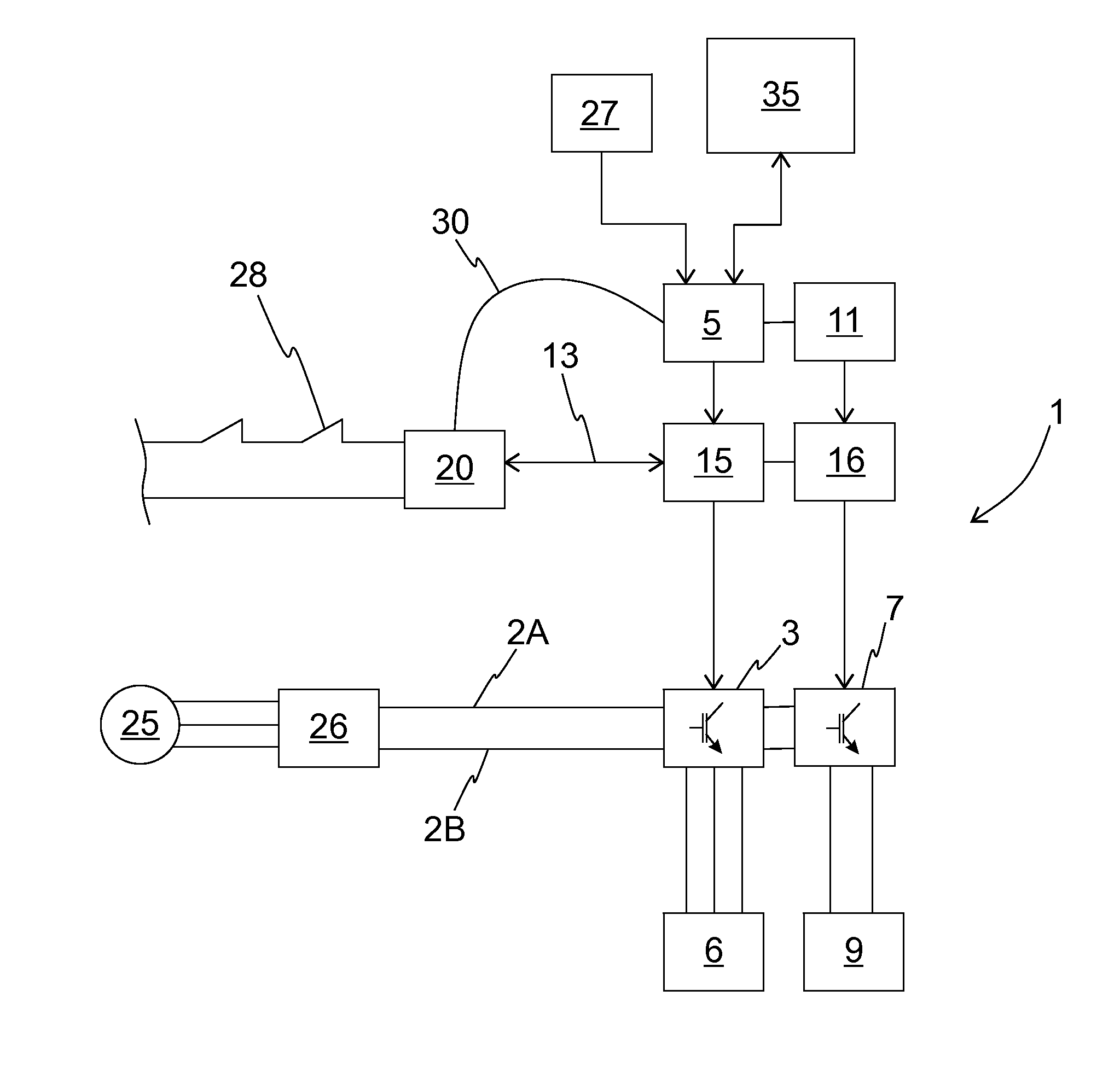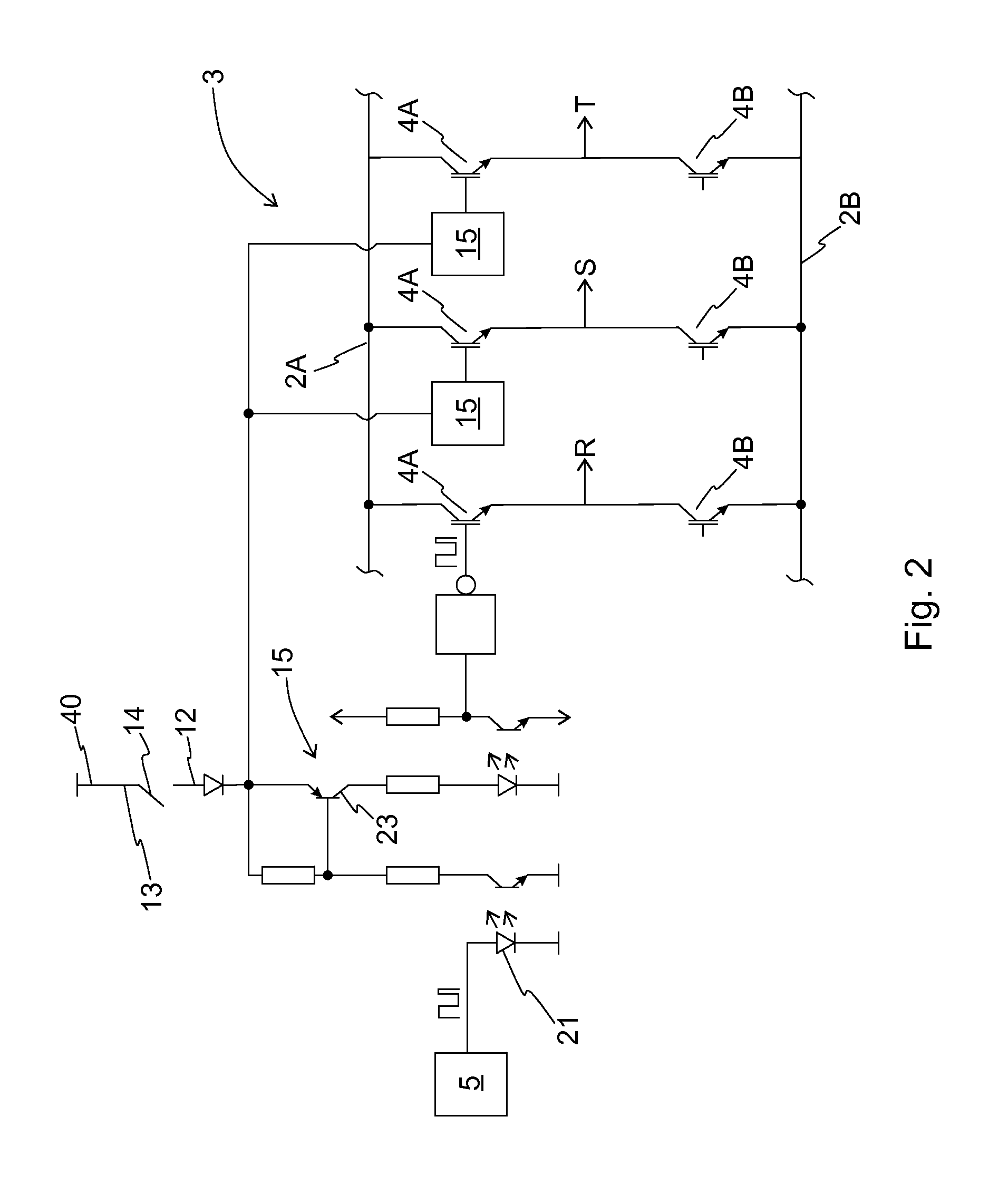Drive device of an elevator
a technology of drive device and elevator, which is applied in the direction of elevators, building lifts, transportation and packaging, etc., can solve the problems of unreliable contactors, mechanical components, and impaired safety in the elevator system, so as to improve the efficiency ratio of the elevator system, prevent the effect of dc bus power supply to the elevator motor
- Summary
- Abstract
- Description
- Claims
- Application Information
AI Technical Summary
Benefits of technology
Problems solved by technology
Method used
Image
Examples
Embodiment Construction
[0046]FIG. 1 presents as a block diagram a safety arrangement in an elevator system, in which an elevator car (not in figure) is driven in an elevator hoistway (not in figure) with the hoisting machine of the elevator via rope friction or belt friction. The speed of the elevator car is adjusted to be according to the target value for the speed of the elevator car, i.e. the speed reference, calculated by the elevator control unit 35. The speed reference is formed in such a way that the elevator car can transfer passengers from one floor to another on the basis of elevator calls given by elevator passengers.
[0047]The elevator car is connected to the counterweight with ropes or with a belt traveling via the traction sheave of the hoisting machine. Various roping solutions known in the art can be used in an elevator system, and they are not presented in more detail in this context. The hoisting machine also comprises an elevator motor, which is an electric motor 6, with which the elevat...
PUM
 Login to View More
Login to View More Abstract
Description
Claims
Application Information
 Login to View More
Login to View More - R&D
- Intellectual Property
- Life Sciences
- Materials
- Tech Scout
- Unparalleled Data Quality
- Higher Quality Content
- 60% Fewer Hallucinations
Browse by: Latest US Patents, China's latest patents, Technical Efficacy Thesaurus, Application Domain, Technology Topic, Popular Technical Reports.
© 2025 PatSnap. All rights reserved.Legal|Privacy policy|Modern Slavery Act Transparency Statement|Sitemap|About US| Contact US: help@patsnap.com



